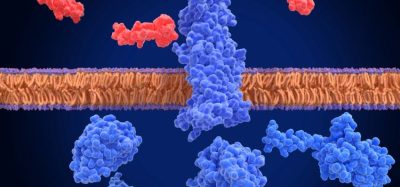Regulatory-first for gene editing therapy
Posted: 19 October 2023 | Catherine Eckford (European Pharmaceutical Review) | No comments yet
The world’s first investigational in vivo CRISPR-based gene editing therapy cleared for late-stage clinical development is expected to enter Phase III in late 2023.


The Investigational New Drug (IND) application for Intellia Therapeutics’ in vivo CRISPR-based candidate NTLA-2001, has been cleared as a gene editing therapy for transthyretin (ATTR) amyloidosis with cardiomyopathy (ATTR-CM) in the US.
“The US Food and Drug Administration (FDA)’s clearance “allows us to initiate a pivotal Phase III trial in the US, marking the first in vivo CRISPR-based candidate to begin late-stage clinical development,” Dr John Leonard, President and Chief Executive Officer of Intellia Therapeutics stated. He added that the company is “thrilled to further advance NTLA-2001… as we embark on a new era in medicine.”
As part of a collaboration with Regeneron Pharmaceuticals, Intellia Therapeutics leads the development and commercialisation of NTLA-2001.
Transthyretin (ATTR) amyloidosis is a rare congenital disease in which individuals have mutations in the TTR gene. This results in the liver producing structurally abnormal transthyretin (TTR) protein with a tendency to misfold. Build up of these damaged proteins as amyloid cause serious complications in tissues such as the heart, nerves and gastrointestinal system.
Gene editing therapy NTLA-2001
NTLA-2001, based on Nobel Prize-winning CRISPR/Cas9 technology, could be the first single-dose treatment for ATTR amyloidosis.
[NTLA-2001] is the first investigational CRISPR therapy candidate to be administered systemically, or through a vein, to edit genes inside the human body”
The gene editing therapy is the first investigational CRISPR therapy candidate to be administered systemically, or through a vein, to edit genes inside the human body.
According to Intellia Therapeutics, the treatment works by using lipid nanoparticles to deliver a two-part genome editing system to the liver: guide RNA specific to the disease-causing gene and messenger RNA that encodes the Cas9 enzyme, which carries out the precision editing.
Both preclinical and clinical data have demonstrated meaningful and long-lasting transthyretin (TTR) reduction following in vivo inactivation of the target gene. This supports NTLA-2001’s potential as a single-administration therapeutic. For example, a global Phase I trial is studying NTLA-2001 in adults with hereditary transthyretin amyloidosis with polyneuropathy (ATTRv-PN) or transthyretin amyloidosis with cardiomyopathy (ATTR-CM).
The global Phase III study of the CRISPR-based gene editing therapy NTLA-2001 is expected to begin by the end of 2023.
EMA validates first regulatory submission for CRISPR-based medicine
Related topics
Biopharmaceuticals, Clinical Development, Clinical Trials, Drug Development, Drug Safety, Gene therapy, Regulation & Legislation, Research & Development (R&D), Technology, Therapeutics
Related organisations
Intellia Therapeutics, Regeneron Pharmaceuticals, US Food and Drug Administration (FDA)









